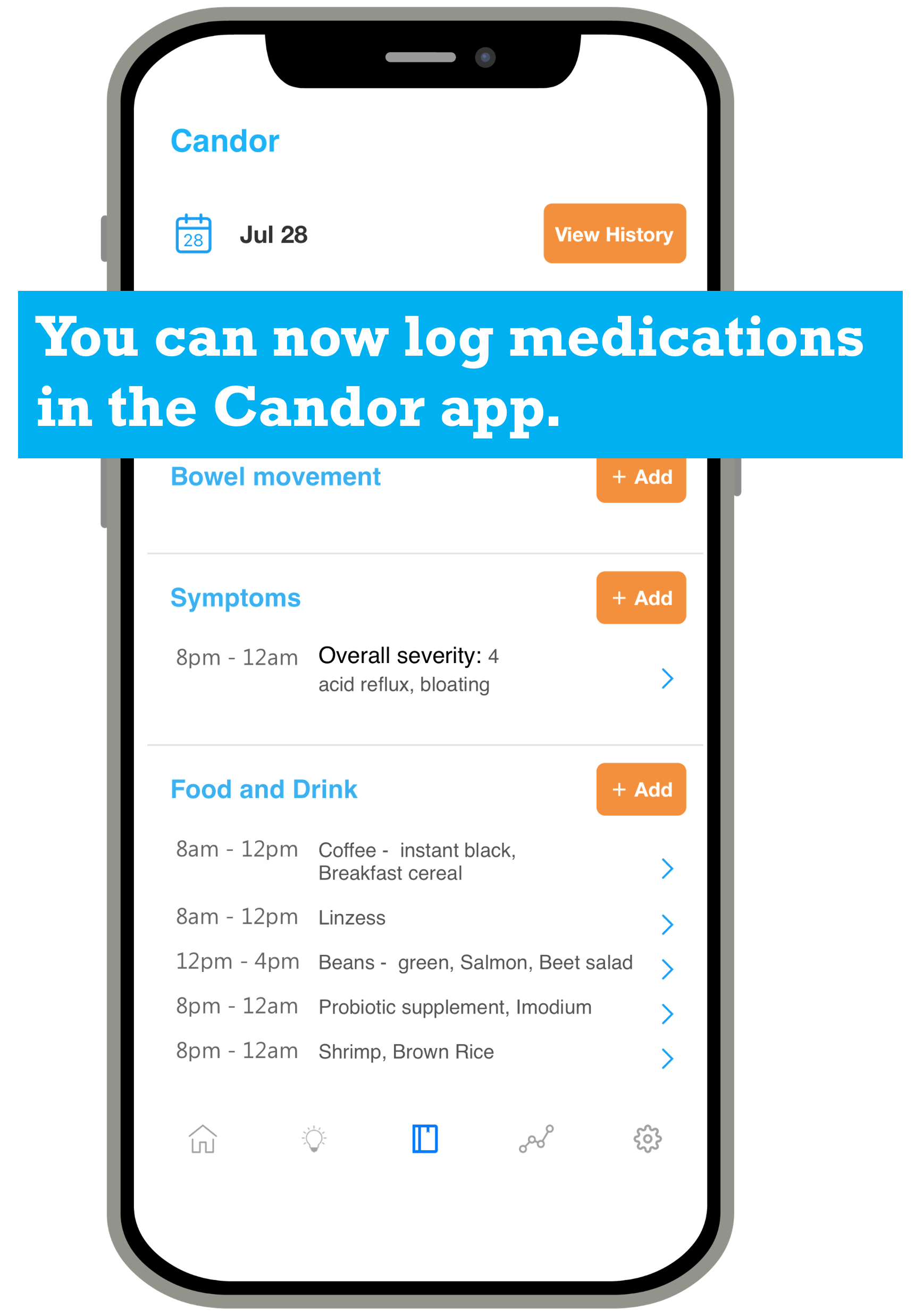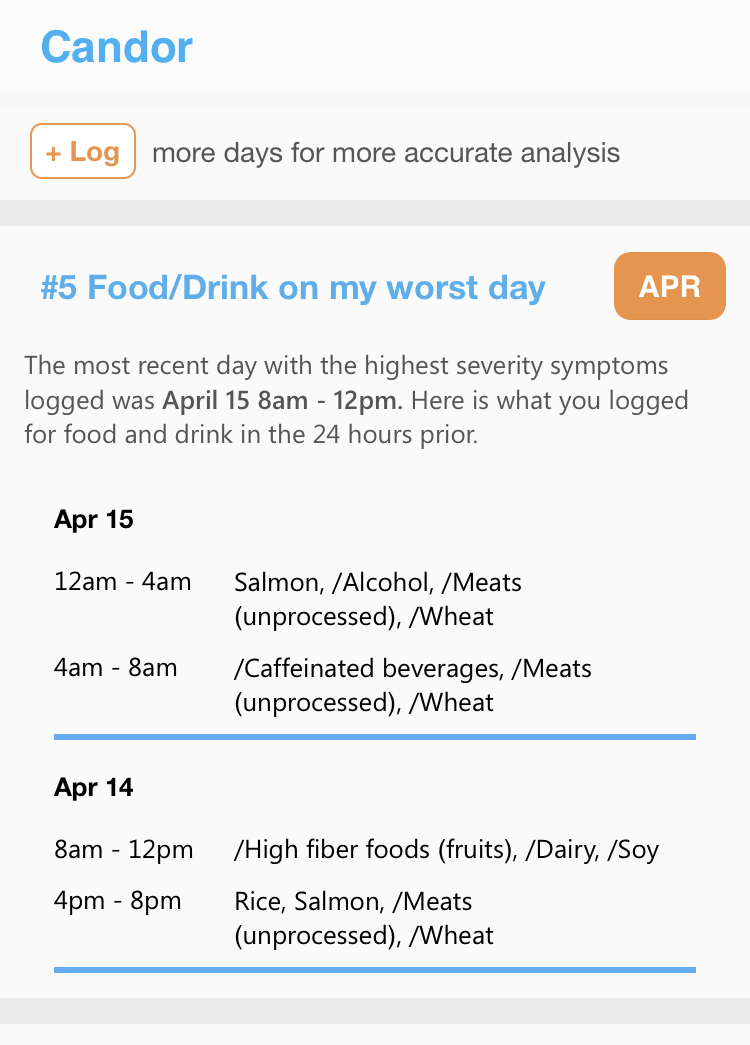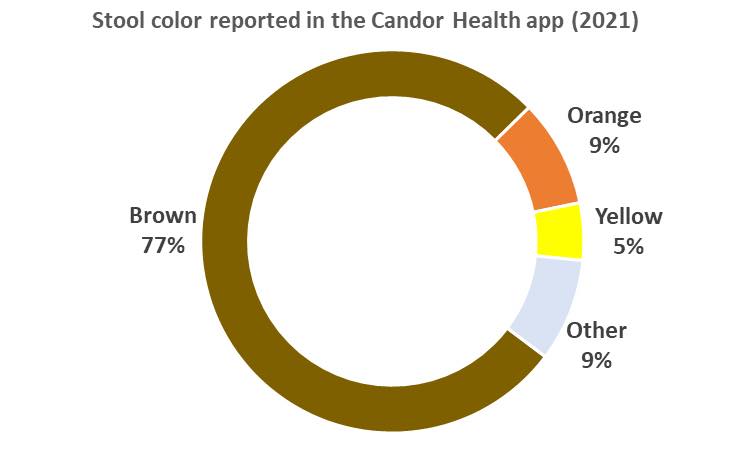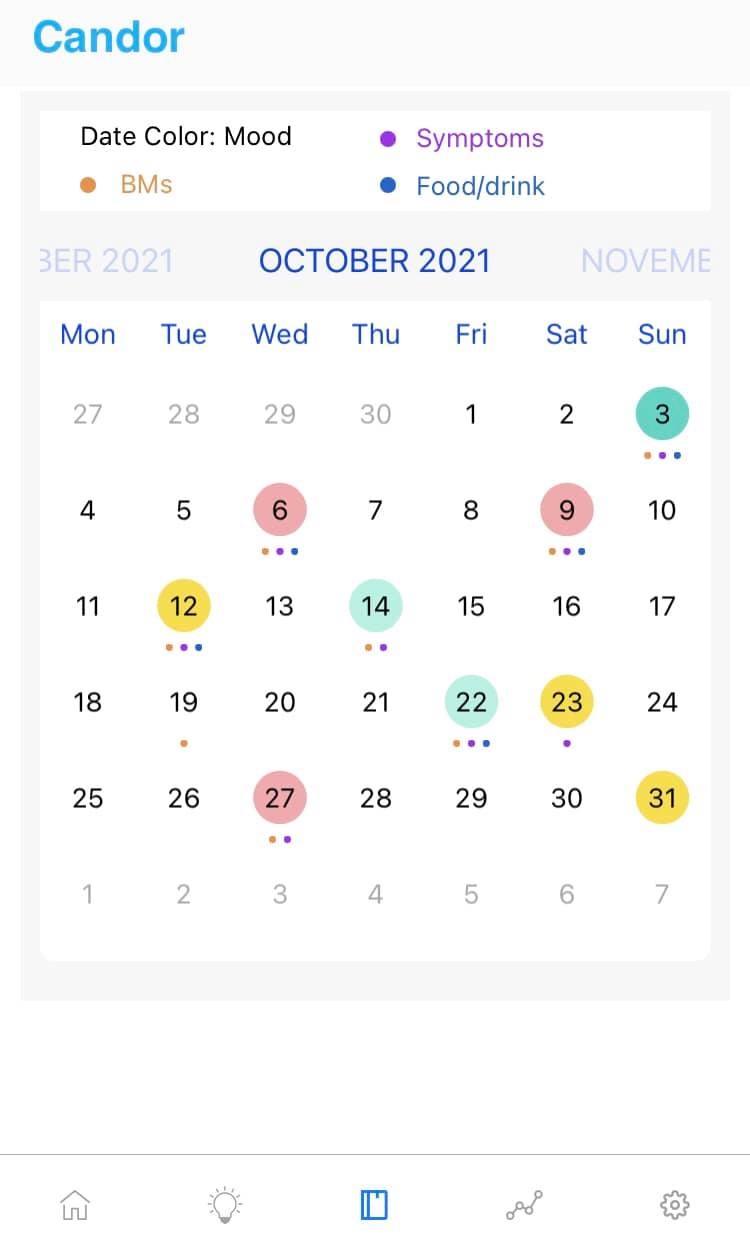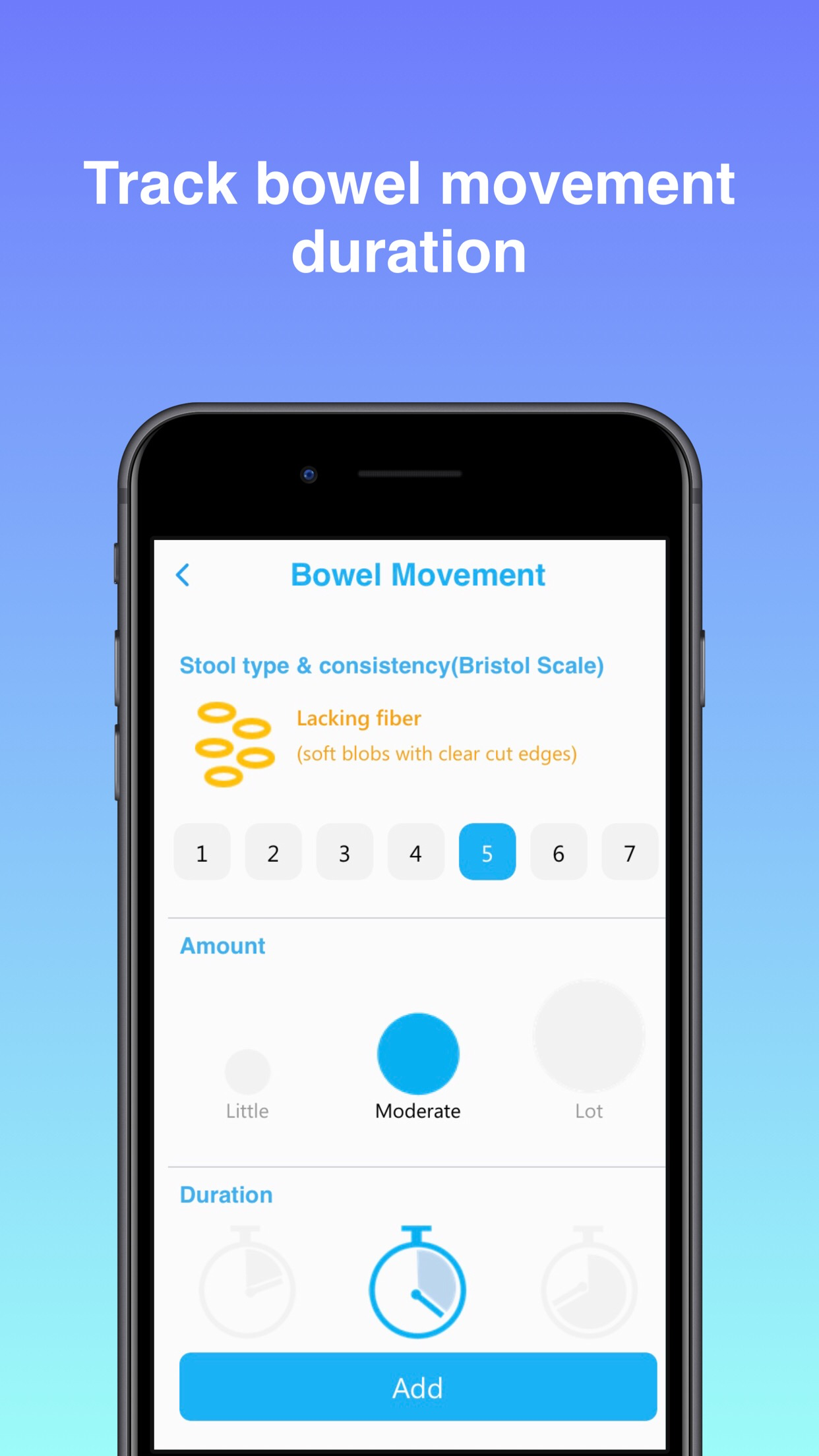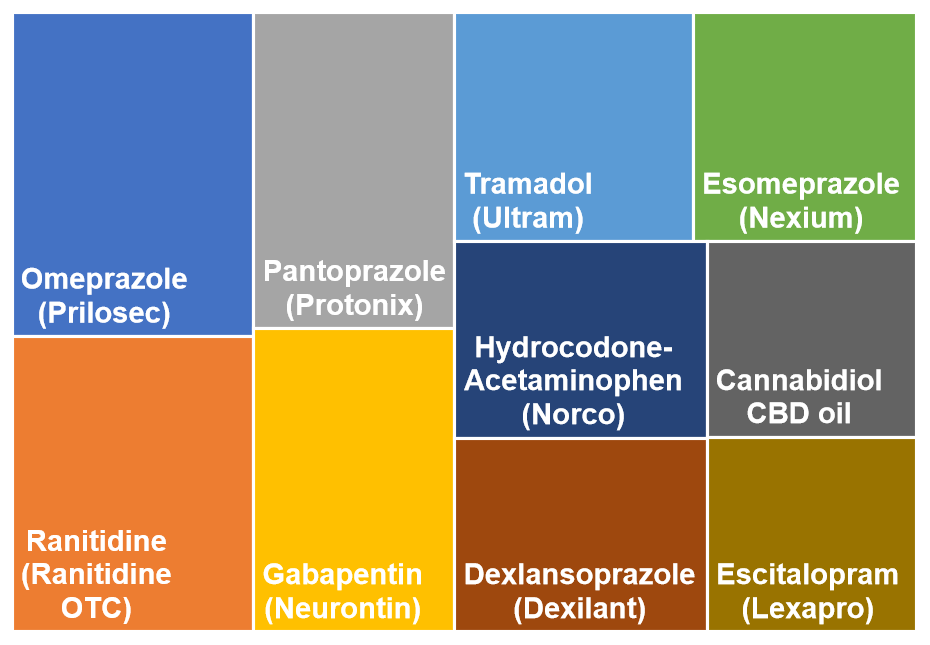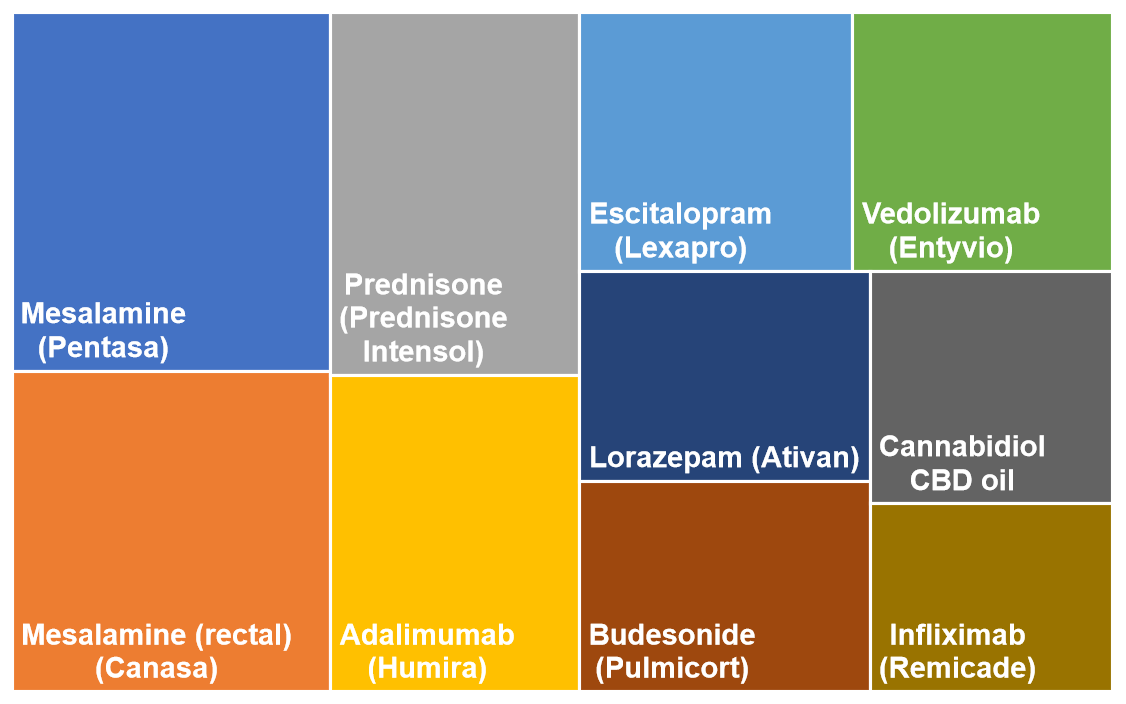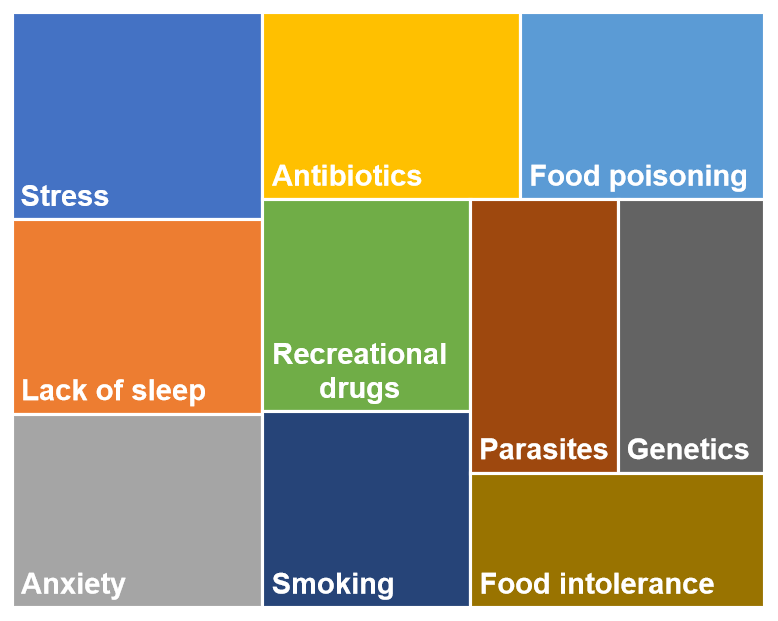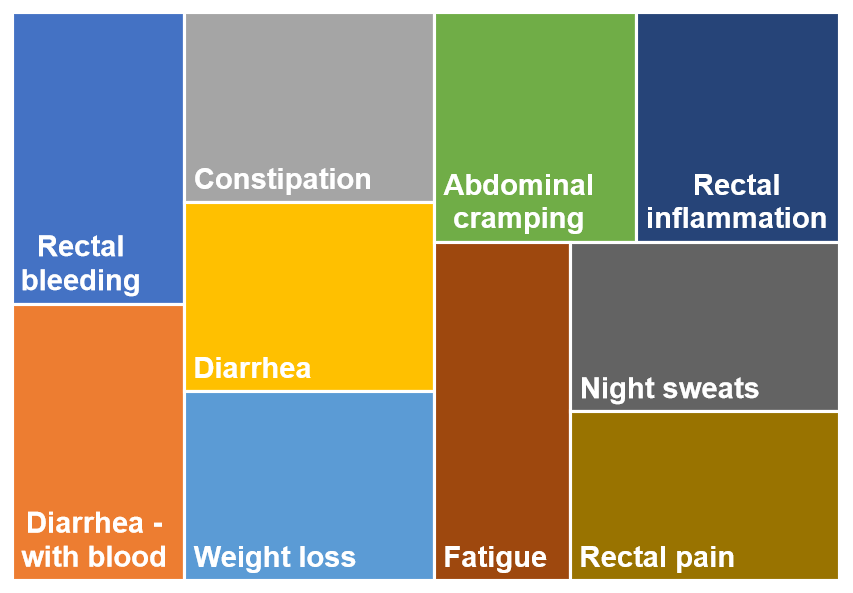The chart below represents the top 10 causes or triggers for IBS. The box sizes in the chart represent the relative popularity based on votes.
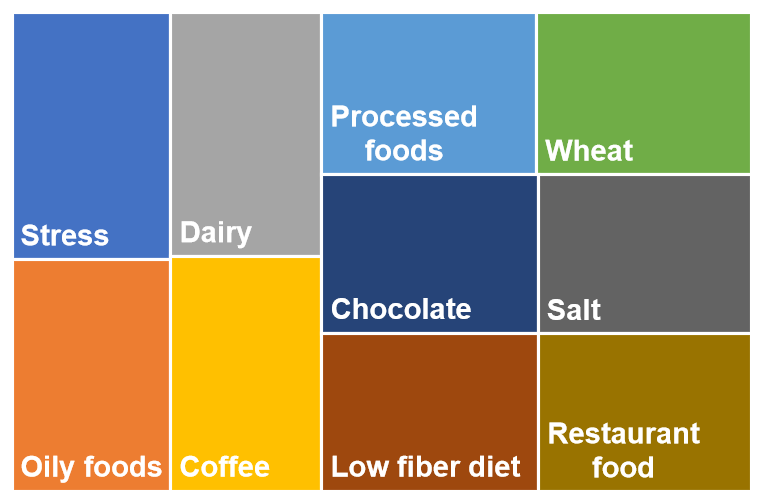
Identifying the Hidden Forces: Understanding the Top Triggers for IBS Flare-Ups
Irritable Bowel Syndrome (IBS) is a highly prevalent and challenging functional gastrointestinal disorder defined by chronic, recurrent abdominal discomfort, pain, and alterations in bowel habits. While the exact root cause of IBS remains a subject of ongoing research—often pointing to a complex dysfunction in the gut-brain axis—the episodes of intensified suffering, known as flare-ups, are frequently linked to identifiable external and internal factors. For individuals living with IBS, recognizing and managing these triggers is arguably the single most critical step toward achieving symptomatic control and improving their quality of daily life. The challenge, however, lies in the deeply personalized nature of the condition; what triggers a severe flare in one person might be entirely innocuous to another.
The accompanying chart provides a comprehensive visual guide to the Top Triggers most commonly reported by and studied in the IBS community. These triggers generally fall into three broad, interconnected categories: Dietary, Physiological, and Psycho-Social.
Dietary Triggers often represent the most direct and immediate cause of symptoms. The digestive system of an individual with IBS is frequently hypersensitive to certain food components, which can lead to excessive gas production, bloating, and abnormal gut motility. High-fat foods, spicy ingredients, and common digestive stimulants like caffeine and alcohol are well-known culprits. Critically, many sufferers react to a group of poorly absorbed carbohydrates known as FODMAPs (Fermentable Oligosaccharides, Disaccharides, Monosaccharides, and Polyols). These include sugars found in milk (lactose), wheat (fructans), certain fruits (fructose), and artificial sweeteners (polyols). Their fermentation by gut bacteria can quickly induce severe bloating and pain. Identifying specific food triggers often requires meticulous tracking and can be effectively addressed through structured elimination diets, like the Low FODMAP approach, guided by a healthcare professional.
However, IBS is fundamentally a disorder of gut-brain interaction, meaning the digestive process is constantly influenced by the central nervous system. This explains why Psycho-Social Triggers, particularly stress and anxiety, stand out as powerful forces behind flare-ups. Periods of increased professional pressure, personal conflict, or even generalized anxiety can alter gut motility, increase visceral pain perception, and potentially impact the gut microbiome, directly exacerbating IBS symptoms. This connection underscores the need for effective mind-body therapies as a core component of management.
Finally, Physiological Triggers encompass internal body changes. These can include hormonal fluctuations (especially during the menstrual cycle in women), the use of certain medications (like some antibiotics or NSAIDs), and even a lack of adequate sleep. When combined with dietary and stress-related factors, these elements create a complex and often unpredictable landscape for the IBS patient. Understanding the top triggers is the essential first step—it transforms the condition from a mysterious ailment into a manageable challenge, allowing individuals to actively avoid or mitigate the forces that destabilize their digestive health.
To see the full list, check out the Candor Health app.


The information presented in this article, including the discussion of the Top 10 IBS treatments, is intended solely for educational and informational purposes. It is designed to provide general knowledge and to promote a greater understanding of Irritable Bowel Syndrome (IBS) and the various treatment approaches currently in use.
This content is not a substitute for professional medical advice, diagnosis, or treatment.
Always seek the advice of a qualified healthcare provider, such as a physician or gastroenterologist, with any questions you may have regarding a medical condition. Never disregard professional medical advice or delay in seeking it because of something you have read in this article.
- Do not use this information to self-diagnose or self-treat a health problem or disease.
- The effectiveness of any treatment can vary greatly from person to person.
- Consult your healthcare provider before starting any new diet, supplement, medication, or therapy.
Reliance on any information provided here is solely at your own risk.


